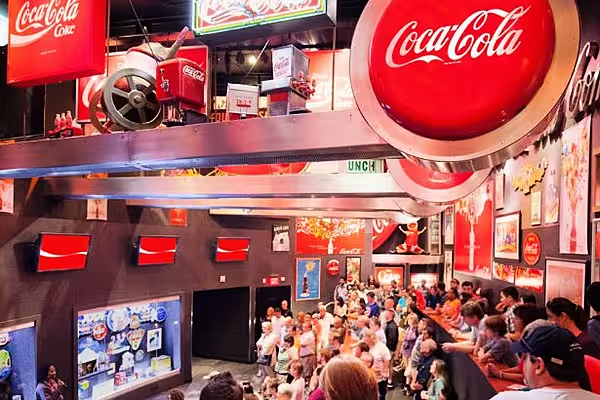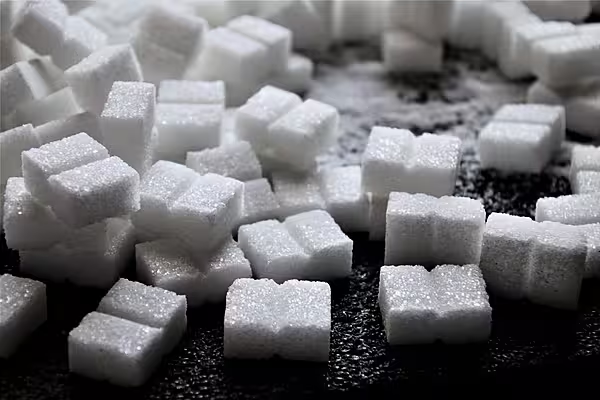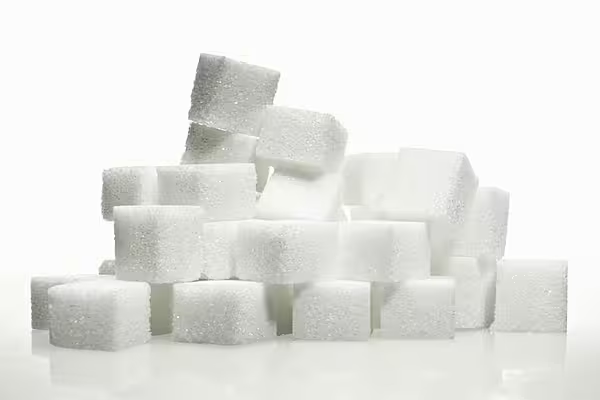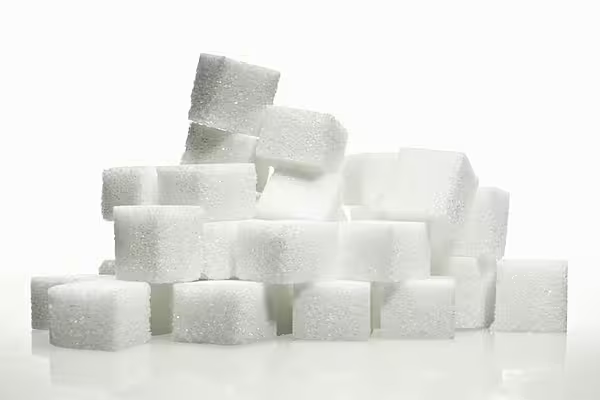The push to reduce the amount of sugar in soft drinks -- long seen as a threat to the beverage industry -- has been more profitable for Coca-Cola Co. than expected.
To respond to consumers’ growing aversion to the sweetener, the company is offering smaller bottles and cans -- essentially getting customers to pay more for less product. It’s also creating new brands and reformulating existing drinks to cut sugar. Coca-Cola says the shift will actually increase sales, and the company’s third-quarter results on Wednesday backed up that confidence. Revenue beat analysts’ estimates, helped by water and sports drinks as well as the higher-margin small packages.
“We can grow the revenue of this business and reduce the amount of sugar and help those people who need to bring it under control, bring it under control,” Chief Operating Officer James Quincey said in an interview with Bloomberg Television.
The company has 200 reformulations in the works that are aimed at reducing the sugar content of its existing products. Fanta and Sprite with 30 percent less sugar are now on shelves in the U.K., and a new, more popular version of Coca-Cola Zero Sugar has been introduced in several markets.
Coca-Cola will continue to make bolt-on acquisitions and investments in innovative brands, particularly in dairy and plant-based protein drinks, Quincey said on a call with analysts. Meanwhile, smaller packages of sodas will guide consumers to make healthier choices, he said.
Sales Beat
The strategy already is showing some results. Coca-Cola posted sales of $10.6 billion, topping analysts’ $10.5 billion average projection. Sales volume for non-soda drinks, which Coca-Cola refers to as still beverages, rose 3 percent last quarter. Volume for sparkling beverages was little changed.
Profit was 49 cents a share, excluding some items. Analysts estimated 48 cents, on average. The Atlanta-based company also reaffirmed its earnings and sales forecasts for the year.
The shares rose 0.3 percent to $42.66 at 12:30 p.m. in New York. Coca-Cola was down 1 percent this year through Tuesday.
Coca-Cola, PepsiCo Inc. and Dr Pepper Snapple Group have suffered from declining sales volumes in recent years as consumers shun sugary drinks. Per-capita soda consumption in the U.S. fell to a three-decade low in 2015, according to data from Beverage Digest, a trade publication. Rival PepsiCo pledged last week that at least two-thirds of the company’s beverage volume will have no more than 100 calories from added sugar per 12-ounce serving by 2025.
Soda Taxes
Some municipal governments are turning against soda, too. In June, Philadelphia became the first major U.S. city to pass a tax on diet and sugar-added beverages. Soda taxes are on the ballot this November in San Francisco and Oakland, California, and Boulder, Colorado.
To help deal with the backlash toward its core soda business, Coca-Cola has diversified its portfolio to add bottled waters, juices, coffees and teas. It also has made investments in juice company Suja Life LLC, aloe-water maker L.A. Aloe LLC and dairy company Fairlife. Coca-Cola is partnering with Dunkin’ Donuts to expand its presence in the U.S. bottled iced-coffee market.
Sparkling beverages continue to make up approximately 70 percent of the company’s volume. However, that lead has shrunk by about 1 percent per year since 2000 and may soon start declining more quickly, Quincey said.
“If you just take the extrapolation of one point a year, it would take us another 20 years to get to 50-50,” he said. “I would certainly like to get there quicker than 20 years.”
In North America -- which is Coca-Cola’s largest market and one of the regions where the sugar backlash is strongest -- still-beverage sales volume rose 2 percent. Volume for sparkling beverages there was “slightly positive,” the company said. Pricing in the North American soda business rose 3 percent, helped by the smaller-package strategy. Altogether, North American sales gained 3.3 percent to $2.66 billion.
“The strongest growth and the places that are really doing well are places like the U.S.,” Quincey said.
News by Bloomberg, edited by ESM. To subscribe to ESM: The European Supermarket Magazine, click here.














